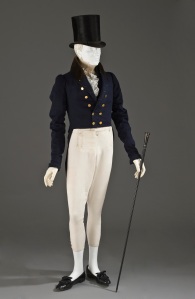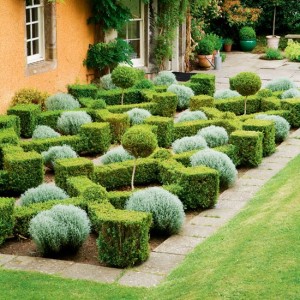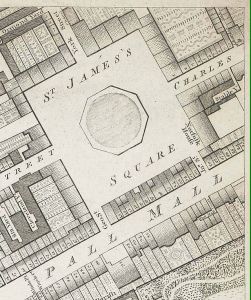In the singular form the lexicon of a particular subject is all the terms associated with it. The lexicon of a person or group is all the words they commonly use. As a plural noun, a lexicon is an alphabetical list of the words in a language or the words associated with a particular subject. To distinguish lexicon from a dictionary, it is an alphabetical list of the words in a language or the words associated with a particular subject.
These examples are a mix of what one might hear upon the lips of the aristocracy, as well as examples of Cant used upon London’s streets and those terms used by farmers and like in the country.

packet – a ship carrying mail (and occasionally passengers) along a regularly defined route
packman – a peddler of ladies’ goods (linen and cotton)
paddock – a horse pasture
page – a boy hired to run errands, etc.
palace – the official residence of a king, queen, bishop, or other sovereign or exalted personage; name given to the home of a bishop in the Church of England
Pall Mall – the site of many fashionable men’s clubs in the West End of London
palsy – any type of paralysis
pamphlets and tracts – very popular with readers of the 17th Century; held true accounts of murders, fires, and robberies, as well as exotic places; often these were “sensational” journalism at its worst; the 19th Century saw a resurgence of these types of story lines in early novels and the Gothic influence
pannier – a large round basket used for market days; slung over a horse
pantalettes – worn from about 1820 to 1850 (end of Regency into the Victorian period) by little girls; undergarments with frilled bottoms and descending below the level of skirt and petticoat to be visible

com/drawers/
pantaloon – pants worn from the beginning of the 1800s; in history, men’s tight-fitting trousers, especially those fastening under the instep worn in the late 18th and early 19th centuries
paragon – exemplary; model of correct behavior
parasol – A parasol is a small umbrella used by women in Jane Austen’s time. As fair or pale skin was considered a thing of beauty, it fell upon women to protect their skin from the effects of the sun. (Remember Caroline Bingley criticizes Elizabeth Bennet for being so “dark” of skin.)
parsonage – A parsonage is the building that houses the leader of the local Christian church. This naming convention may differ by denomination. May also be known as a vicarage, manse or rectory.
Parliament – consists of the House of Lords and the House of Commons
parish – the local unit of ecclesiastical jurisdiction in the Church of England
park – an enclosed area with trees and lawns and sometimes sheep and deer for the purpose of artistic views, rather than for profit or cultivation
Park Lane – an upscale address in Mayfair; ran along the eastern border of Hyde Park
parlor – the formal room in a modest home
parlormaid – hired in families who could not afford a male servant to perform duties similar to a butler
parsonage – the house given to the local parson as part of the “living” presented to him by his patron; the land attached to the parsonage often remained the property of the local landowner
parterre – different-sized plots of flowers connected by various walkways and paths in a formal garden

co.uk/garden/picture/
box-parterre-garden
pastille – a roll of paper that could be set afire to disinfect or fumigate a room
patent – given by the monarch to his subjects; a “letter patent” was an open letter that could be read by anyone, which permitted the holder certain privileges; a “patent of nobility” was a royal grant of noble status
patience – a card game of solitaire
patriarchal society – a society where women’s rights are ignored; men hold the rights and the decision making powers
patronage – giving notice to or financial assistance to a person or place
pattens – worn by women to keep their shoes from getting muddy or wet in the outdoors; circular rings that could be strapped onto the shoe’s bottom to raise the foot up a few inches; a heavy wooden clog worn for work in the garden or to walk through mud.
Peeler – nickname given to the members of the new Metropolitan Police Force (Scotland Yard, etc.), which replaced the Bow Street Runners; founded in 1829 by Sir Robert Peel
peer – a nobleman (duke, marquis, earl, viscount, baron); hereditary title; owner of a seat in the House of Lords
pelisse – a long, dress-like coat, which was often lined with fur; a long-sleeved ladies’ jacket with a 3/4 length worn in the 18th and 19th centuries; Sleeves may be short or long, garment is buttoned or tied in the front, generally, the skirt extends full length to three quarters length.
Pembroke – a four-legged table with two sides that could be swung up for additional space
pence – the plural of penny
Peninsular War – the campaign fought by the Duke of Wellington from 1808-1814 in Spain and Portugal against Napoleon’s forces
pensioner – an ex-soldier or sailor; in-pensioners resident at the Royal Hospital at Chelsea (army) or Greenwich (navy); out-pensioners lacked an official residence; at Cambridge University, the term meant a nonscholarship student
perpetual curate – a parish clergyman equivalent to a vicar; distinguished from an ordinary curate; Perpetual Curate was a class of resident parish priest or incumbent curate within the United Church of England and Ireland. The name is found in common use mainly during the first half of the nineteenth century. The legal status of perpetual curate originated as an administrative anomaly in the 16th Century. Unlike ancient rectories and vicarages, perpetual curacies were supported by a cash stipend, usually maintained by an endowment fund, and had no ancient right to income from tithe or glebe.
personal guide book – books that define proper conduct; highly popular in the early 18th century; people of the upwardly mobile middle class sought these self-help books to learn how to conduct themselves properly in Society
petticoat – part of a woman’s intimate clothing; had a decorative binding at the bottom and sometimes extended a bit below the woman’s gown’s hemline; the chemise went over the petticoat; made of linen; its purpose was to protect the hem of the lady’s dress

Nikolaus Innocentius Wilhelm Clemens von Heideloff, 1761-1837 – Dresses of August 1794 from The Gallery of Fashion – Public Domain – Wikipedia
phaeton – a light, open carriage with 4 wheels and pulled by 1 or 2 horses and used for pleasure driving; usually had a convertible top; a low phaeton had seats lower to the ground than the high phaeton, which young gentlemen preferred; the high phaeton was more dangerous to drive as the height made it easy to tip over; women often drove low phaetons around restricted areas (i.e., an estate), rather than on public roads. The high-perch or highflyer phaeton was made fashionable by the Prince Regent.
physician – the most distinguished of the medical professions; dealt only with internal disorders (illnesses for which a physic could be given); surgeons handled broken bones, wounds, etc.; physicians were referred to as “Doctor,” while surgeons were “Mister”
pianoforte – a predecessor of the modern piano; developed in about 1730. According to Candice Hern‘s website, “Keyboard instruments prior to that time could be played with precision but without variation of volume. The pianoforte allowed more versatility by producing notes at different volumes depending on the amount of force used to press the keys. It could be played softly (piano) or loudly (forte) — the full Italian term for the original instrument was gravicèmbalo col piano e forte (literally harpsichord with soft and loud).” The pianoforte shown in the image below is a Broadwood, 1791, from Kenwood House in London.
Piccadilly – an upscale street in the West End of London; said to be called as such because an 1600s tailor in the area made high ruff collars called piccadillies
pier glass – a long mirror placed between two windows; used for ornamentation purposes
pin money – an allowance given to a woman as part of the marriage settlements
Pink of the Ton – height of fashion or top of the mode. Usually referred to males. Beau Brummell is often spoken of in this sense, for Brummell was a trend setter (image from Wikipedia)
pipe – wine was sold by the “pipe,” or a unit of 105 gallons
piquet – a card game for two people played with 32 cards (no 2s, 3s, 4s, 5s, and 6s); players must earn the highest number of cards in one suit
plant a facer – strike someone in the face
plate – silverward
Plough Monday – first Monday after Twelfth Day; a new agricultural season began on this day
pluck to the backbone – brave; courageous
plums – in the Christmas plum pudding, plums were raisins
pluralist – holding more than one benefice or living in the Church of England
poaching – an illegal act where someone hunt game animals on another’s property; land owners could trap the poachers in a similar animal trap or even shoot them, if caught; those caught poaching could also be sent to a penal colony
pocket borough – a parliamentary borough under the control of a powerful individual; outlawed in 1832 by the Reform Bill; in the man’s “pocket,” so to speak
pocket pistol – a flask for alcohol carried in a pocket; Queen Anne pistols are a type of flintlock pistol distinguished by the lockplate being forged in one piece with the breech and the trigger plate. They are usually a breech-loading design known as a turn-off pistol. Possibly first made in England and certainly achieving relatively little popularity elsewhere, they came in fashion in England during the reign of Anne, Queen of Great Britain, hence the name.
pony – slang for £25
poorhouse – publicly supported homes for the poor
poppet – a term of endearment usually spoken by a man of, perhaps, his sister or even of a woman affected
port – a favorite after-dinner drink for gentlemen; a sweet Portuguese red wine
portmanteau – a traveling bag; a large two-sided trunk or suitcase
post – the system by which the king’s horses were provided; later the system for delivering the mail
postboy – boys who delivered the mail on foot or horseback before the mail coaches replaced them in the late 1700s
post captain – title to distinguish captains in the Royal Navy who held permanent positions as captains of ships with at least 20 guns
post chaise – a chaise used with rented horses; on long journeys, it was necessary to change horses periodically; travelers would send their horses home after a long journey and travel on with rented ones – Again, Candice Hern’s site describes the post chaise, as such and provides additional information: “The post chaise or traveling chariot was a small carriage pulled by two or four horses, and was owned or hired by those wishing to travel privately, that is not on a large public conveyance like a stage coach or mail coach. Hired post chaises were most often traveling chariots that had been discarded by gentlemen — sort of like a fleet of used rental cars. The hired chaises were generally painted yellow, hence the nickname Yellow Bounder. They were quite small, usually with only one forward seat facing a large glass window. There was often an outside bench seat in the back, over the rear wheel, where servants rode. Luggage was carried on a little forward platform between the front springs, and could also be strapped on the roof. The post chaise was “steered” by postilions, or post boys, seated upon the horses. There was no seat for a driver, and none was needed. One post boy was engaged to drive each pair of horses, ie a team of four horses was driven by two post boys, a lead-boy and a wheel-boy. Each rode on the left side of a pair, and wore iron guards on his right leg and foot to protect against injury from the center pole. The wheel-boy was generally the more experienced of the two. New post boys were trained by riding the lead team with the wheel-boy calling out instructions from behind. When the horses were changed along the route, new post boys were hired with them. Boys in name only, these riders were generally small, hardy little men, like jockeys, and were often colorful characters nattily dressed in “uniforms” associated with specific posting inns. They almost always wore white leather breeches and short jackets with large brass buttons, and tall beaver hats in which they kept their possessions. Private postilions were kept by those who traveled frequently and used their own traveling chariots. But these drivers often posted only to the first stop on a long journey, driving the owner’s team back home after new horses and post boys were hired.”
The print shows a post chaise: “The Elected M.P. on His Way to the House of Commons” by James Pollard, 1817. From the book The Regency Road by N. C. Selway.
postilion – the person who rides and guides the horses that is pulling a carriage
potboy – a youth who delivered drinks at a tavern
pony – 25 pounds Sterling (Cant)
pound – a unit of money = 240 pence or 20 shillings; the basic unit of currency used in the United Kingdom. Also called the pound sterling as its was forged from silver metal. The pound is broken into smaller units of currency called pence.
preferment – a job or position that was a step upward financially or socially
Presbyterian – Presbyterian theology typically emphasizes the sovereignty of God, the authority of the Scriptures, and the necessity of grace through faith in Christ. Presbyterian church government was ensured in Scotland by the Acts of Union in 1707, which created the Kingdom of Great Britain. The Presbyterian denominations in Scotland hold to the Reformed theology of John Calvin and his immediate successors, although there is a range of theological views within contemporary Presbyterianism.

primogeniture – meant that a family’s property and wealth went directly to the eldest son; ensured that property stayed with the family and the paternal surname survived; the legal right of the eldest child (son) to inherit the entire estate of his parents. Subsequent sons had to make a living by choosing an occupation fitting for a gentleman (clergy, solicitor/lawyer, etc.).
Prime Minister – head of government
Prince Consort – a prince married to a reigning queen
Prince Regent – A Prince who rules in place of an incapacitated father. In the case of the period between 1811 and 1820, Prince George IV (sometimes referred to as “Prinny”) ruleed because his father, George III, had a debilitating mentally illness. The name “Regency” as in Regency Era is derived from this distinction. The Regency Period saw the rise of many well-known authors and styles of art, including Jane Austen and Regency Classicism.
Princess Royal – the oldest daughter of a reigning monarch
priory – usually a small abbey or a monastery run by a prior prioress
private ball – given by the owner of a large country house or an upscale home in London’s more prestigious districts; attendance came by invitation only; the evening followed a particular schedule: began at 8 P.M. with mingling and dancing; dancing the supper set with a lady meant a gentleman escorted her in to supper at midnight; departure came between 3-4 A.M.
prize money – a manner of earning a fortune in the British Navy; money or loot obtained from capturing a vessel and dividing the proceeds among the capturing crew
promenade – a promenade is either a public or private area reserved for walking. The phrase can also be used to refer to walking, either as exercise or for pleasure.
public ball – also referred to as assemblies; open to anyone who could afford a ticket; the ball ticket also included supper; were generally held on a monthly basis to coincide with the full moon (to expedite travel at night)
public school – a particularly English phenomenon with a long history; public schools were actually private schools such as Eton, Harrow, and Rugby; founded by wealthy donors as “independent schools” for ordinary boys to learn Greek and Latin, but, eventually, the schools took in boys from aristocratic and even royal families and became “private” schools; government supported public education did not begin until the 19th century in England; Winchester College was the original English public school
publishing banns – a means to marry in the Church of England; the couple requested the local clergyman to announce their upcoming wedding from the pulpit for three successive Sundays during the service; a bride and groom who lived in different church parishes had the banns read in both; if no one objected to the wedding then the couple could marry within 90 days of the final announcement of the banns; because publishing the banns cost nothing, it was the preferred method of the poorer classes
puffed off – when a young lady is married off, much to her mama’s delight
Pump Room (Bath) – where Society in Bath gathered to ‘take the waters’ (drink the thermal spa water for medicinal purposes); also the place to meet and socialize, and, of course, to ‘promenade’ about the room
pumps – customarily worn by men as formal footwear; usually brown or black in color and, generally, unadorned, though a small tassel or bow could be seen occasionally; to be worn instead of boots at balls or assemblies; said to be required by the patronesses of Almack’s
purse – used by a gentleman to hold his coins
putrid fever – Typhus
quadrille – a dance performed by four couples in a square formation; had 5 sets of movements; originally the word “quadrille” was a card game played by 4 people with 40 cards, similar to whist
quality – how the lower classes referred to the upper classes
quarter days – four days which marked when rents were due: Lady Day (March 25), Midsummer (June 24), Michaelmas (September 29) and Christmas (December 25)
quarto – a sheet of paper that had been folded twice to yield 4 leaves (8 pages)
quid – money slang for a sovereign; one pound sterling
quinsy – tonsillitis
quiz – someone who mocks others or acts peculiarly
quizzing glass – a single lens spectacle with a short ornate handle generally worn on a ribbon or chain around the neck
Quorn – one of the oldest and most prestigious of the fox-hunting packs in England; named for Quorn Hall in the Midlands where the pack was first bred in the mid 1700s
If Interested, Check Out These Other Resources:
Other Sources:












Peelers in time became “The Old Bill” then just “The Bill” and is still used; The Bill referred to was the bill establishing the Metropolitan Police Force, which is also known as “the Met” besides ”The Bill”. There was a long running TV production called “The Bill”.
The title Princess Royal isn’t always conferred on the eldest daughter of the sovereign, Elizabeth II was never created the Princess Royal as her aunt Princess Mary was still alive, the PR once awarded is for life and there can only ever be one PR at a time.
The practice of referring to surgeons as “Mister” still exists, it stems from the time that the medical profession such as it was in England did not recognize them and they practiced their craft through barber shops, (hence the red and white pole outside, the red signifying the blood running down a limb when operating). The Royal Navy did not have doctors upon their ships, they only had “surgeons” and if the surgeon got killed in action another member of the ships company ( the RN does not have a crew on their ships it’s either a ships company or ships compliment) was appointed to the post.
just a small thing a slight omission I’m sure but it is actually “Letters Patent” always.
Just a typo, Brian.